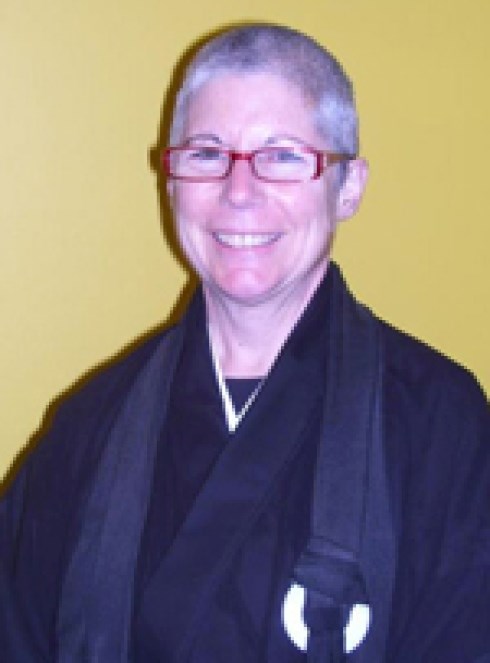“Buddhist priests in Myanmar are leading an uprising against Muslims. Please ask them to stop.”
This was the heartfelt cry that came to me recently via twitter.
It’s a shock to North Americans to hear of Buddhists acting violently. We think of them as pacifists, because for instance, Buddhist monks led a pacifist uprising against this same country’s military regime only a few years ago.
Buddhists of course are not immune to worldly affairs. They are human and therefore can act in ways that harm others, including inciting other Buddhists to oppress their Muslim neighbours.
People are social and tribal and can easily fall into the trap of seeing another group as “other” and therefore the enemy.
This all too human reaction against perceived suffering, to identify as a group and to act against others, is a scenario that plays out repeatedly throughout history, and around the world. Here in Victoria, the cost to others ranges from the lack of comprehensive support for homeless people and effective care for mentally ill people, all the way to ongoing systemic oppression of First Nation peoples.
Although in my view we’re all responsible for this suffering, our leadership has a role too. Some leaders help to broaden our horizons, and allow us to act compassionately, but leaders can, and often do, lead people astray. It is up to the individual to question authority, and before any proposed action, to check in with their own values. This is not always an easy thing to do. Buddhists make vows that are given as guidelines to help them live more peacefully during difficult times. These precepts or sila, for instance include:
Affirm life; do not kill. This is difficult to follow, some would say impossible, because we have to kill to eat. Though the plant may live on, vegetables and fruit die as we cook them or consume them. If we don’t eat, we are killing ourselves. This sila is about waking up and noticing what we are consuming, and perhaps in the process also finding joy and gratitude. Another aspect of this sila is noticing how we value ourselves over other life forms. As I watch my actions with this sila in mind, I notice myself swatting mosquitos, killing earthworms inadvertently as I turn the compost, watching where I put my feet as I walk past a busy ant colony.
Realize self and other as one; do not elevate the self and belittle others. (translation from zenwest.ca)
This precept is hard to live up to. I’ve grown up in a culture that looks down on other races, looks down on the poor, looks down on the mentally ill. I’m Canadian, so I know I’m not racist, I know I’m nice. Well, when I look closely with this sila in mind, I see that the recesses of my mind have some very dark corners indeed, including unexamined attitudes that are not pretty, some of which are in fact racist and prejudiced. In this activity of being a Buddhist, this exploration of who I am, I have realized that in order to live up to my own values of honouring and respecting others, I will have to be mindful of my own hidden racism.
Abstain from creating discord. Actualize harmony. Clarify the mind, and be of benefit to all beings. Living with these 3 additional sila in mind, also leads to rich discovery, less tension and stress, and a better alignment of values and actions.
Taking all these precepts to heart can lead to transformation and an end to the violence both in Myanmar and at home.
 Soshin McMurchyis a junior priest with Zenwest Buddhist Society at zenwest.ca, and serves as the Buddhist chaplain with the University of Victoria Multifaith Services. She lives with her life-partner Doshu who is also a priest with Zenwest.
Soshin McMurchyis a junior priest with Zenwest Buddhist Society at zenwest.ca, and serves as the Buddhist chaplain with the University of Victoria Multifaith Services. She lives with her life-partner Doshu who is also a priest with Zenwest.
You can read more articles from Spiritually Speaking HERE


